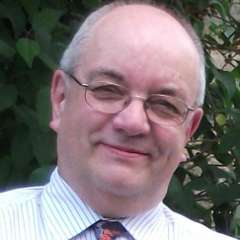Everybody loves Candide, you’d think, yet the show struggles to find its place in the repertory. Is the comedy too dark and the narrative too jumbled? Is it an operetta that thinks it’s a musical, or vice versa? What voice types work best in it?
Richard Wilbur’s lyrics fizz with Broadway pizzazz and laugh-out-loud wit but they need a musical theatre sensibility to put them across. The problem with Leonard Bernstein’s 1989 recording with the London Symphony Orchestra and Chorus, and to a lesser extent with this concert by the same forces, is the usual one of opera singers slumming it and thinking they’re funny. Alas, alack. For out-and-out fun nothing beats John Caird’s National Theatre production of 1999, in which Daniel Evans’s ingénu Candide and Simon Russell Beale’s drily hilarious Pangloss showed that acting chops matter way more than trained voices. For the present concert Leonardo Capalbo did well in the title role but his tenor sound is too rock-hard for a role than demands lyricism and vulnerability; as for Sir Thomas Allen, magnificent artist though he is, sardonic narration is not his thing and his jokes fell as flat as an MP’s stand-up act.
In a rendition such as this, concert forces make Candide feels more like The Rake’s Progress than a comic operetta; yet there is at least one character who demands a serious voice and Jane Archibald gave possibly the most dazzling account of her music that I’ve heard. Cunegonde, Voltaire’s much-murdered heroine, needs a uvula of steel and stellar coloratura in her showpiece aria “Glitter and be Gay”, and the Canadian soprano delivered in spectacular style. Anne Sofie von Otter was ramrod-stiff as the Old Lady and couldn’t quite project the exotic gleam in her eye, but the great mezzo did enter into the swing and even hoofed a little light choreography at one point.
Better than any of them at bridging the gap between musical styles were tenor Thomas Atkins and baritone Marcus Farnsworth. Sharing eight named roles between them, these are singers who get the comedy and grip the audience. Each had his place in the sun, the former as Vanderdendur (“Oh, but I’m bad”), the latter as Maximilian (“I am everything I need”), and together they were seldom far from the action. A strong supporting cast of Guildhall School Young Artists filled the other roles with aplomb while the tireless London Symphony Chorus threw its collective self into the musical's madness. In their combined hands the grand finale, “Make Our Garden Grow”, sounded like the climax of a Mahler symphony.
Marin Alsop conducted with vigorous precision and all the wit in the world, and the LSO’s response from overture to playout was exultant. Bernstein could not have asked for more. The same cannot be said of the man who directed this semi-staging, the American Garnett Bruce, because he missed too many bullseyes along the way. The lovers’ contrasting life ambitions in “Oh Happy We” (Cunegonde: “Breast of peacock”; Candide: “Apple pie”) went for nothing, while blissful lines like Cunegonde’s explanation of her survival, “Ah, but love will find a way”, also passed unnoticed. It’s the LSO who must take the blame here, because who’d hire an opera man to find the fun in a musical?




